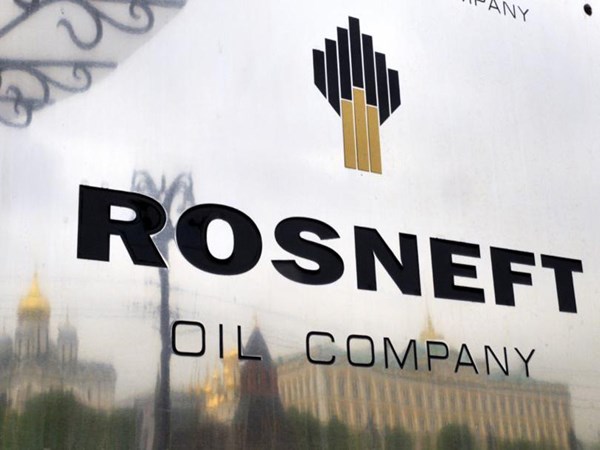Russian oil giant Rosneft converts nearly all its foreign currency reserves to dollars
The Russian oil company Rosneft has reduced its euro-denominated investments to an absolute minimum, disposing of 90% of its liquid euro-denominated assets, according to the company’s second quarter report.
While at the start of the year, Rosneft’s “foreign currency cushion” was 43% in euros and 57% in US dollars, by June 30, the American currency accounted for 89% and the European for only 11%.
In half a year, Rosneft’s total euro-denominated assets plummeted by nearly 90% from €5.9 to €0.7 billion.
At the end of last year, the euro was the only currency that the company had a surplus of, with its holdings exceeding its debt. The difference, around €2 billion, consisted of a net long position in the form of cash in bank accounts, deposits, and short-term financial assets.
However, these holdings have subsequently been completely disposed of. On June 30, its net debt in the European currency was €2.8 billion.
Rosneft’s amount of dollar-denominated assets has also decreased from $16.3 billion at the start of the year to $8 billion at the end of the second quarter. Reserves in the form of cash holdings and bank balances dropped by nearly 80% from $8.2 to $1.8 billion.
The reserves of ruble-denominated assets have changed only insignificantly, from 417 billion rubles (worth around $6.3 billion) at the start of the year to 383 billion rubles ($5.8 billion) as of June 30. At the end of the report period, Rosneft was keeping 52% of its financial assets in dollars, 42% in rubles and 6% in euros.
The foreign currency in the company’s accounts was used to repay debt, primarily ruble-denominated debt: in six months, it decreased by 401 billion rubles ($6.08 billion). Only a small portion – €0.4 billion – was used to repay debts in the European currency.
During the report period, Rosneft’s dollar-denominated debt grew from $26.7 to $26.8 billion.
At present, Rosneft has roughly $13.5 billion in liquid assets. This reserve is enough to completely cover the short-term debt that needs to be repaid in the next 12 months ($11.2 billion), analysts from Raiffeisen Bank observe.
Nevertheless, Rosneft cannot afford to use up its entire cash cushion. The company “needs a liquidity reserve in light of the sanction pressure,” the bank note
